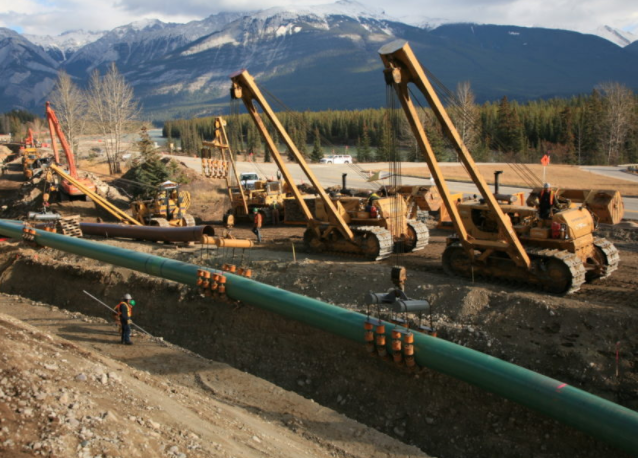Canada News
Anti-pipeline protesters blocking Vancouver ports vow to ignore injunction

On Sunday the protesters were served with a court injunction ordering them to stop blocking access to four ports in the Vancouver area, but the protesters say they intend to stand their ground. (File Photo: Transmountain/Website)
The stage has been set for a possible confrontation between police and anti-pipeline protesters blocking access to four ports in the Vancouver area.
On Sunday the protesters were served with a court injunction ordering them to stop blocking access to four ports in the Vancouver area, but the protesters say they intend to stand their ground.
The court injunction, sought by the Vancouver Fraser Port Authority, orders protesters to leave the authority’s lands and stop blockading access points to ports in Vancouver and Delta, B.C. — or face arrest.
A spokeswoman for the authority said the action had to be taken so that port operations can resume.
The protesters are acting in solidarity with Wet’suwet’en hereditary chiefs, who are trying to halt construction of a massive pipeline project that crosses their traditional territory in northwestern British Columbia.
Their fight has sparked a protest movement that spans from the steps of the B.C. legislature in Victoria to the ports in Vancouver to rail lines in Ontario and Quebec.
Meantime, several people arrested at various remote locations in northwest B.C. near construction zones for the 670-kilometre Coastal GasLink natural gas pipeline were due in court Monday. They are charged with breach of trust, a Wet’suwet’en spokeswoman said.
The RCMP said Saturday that officers enforcing a court injunction arrested 11 people who allegedly barricaded themselves in a warming centre in a forested area near a pipeline work site.
The other arrests occurred Friday at another Indigenous camp near the pipeline route.
Premier John Horgan said the pipeline, which is part of the massive $40 billion LNG Canada liquefied natural gas export terminal project, is of vital economic and social importance to the province’s north and already has the approval of 20 elected First Nations councils along the route from Dawson Creek to Kitimat.
He said the courts have decided the pipeline can proceed and the rule of law must prevail.
This report by The Canadian Press was first published Feb. 10, 2020.





















